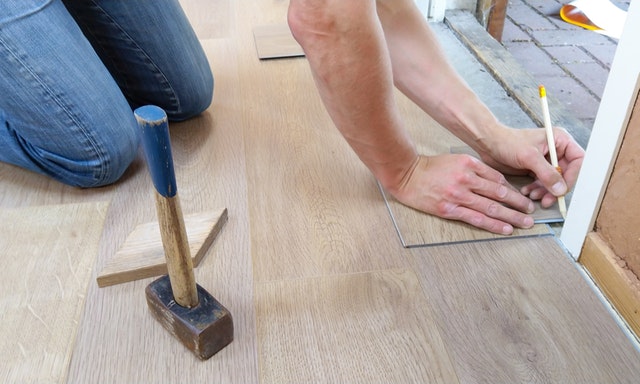 Comparing mortgages is a crucial step in the process of buying a home or refinancing an existing mortgage. Here are some reasons why:
Comparing mortgages is a crucial step in the process of buying a home or refinancing an existing mortgage. Here are some reasons why:
Save Money: Comparing mortgages can help you save money by finding the best interest rates and terms available. A lower interest rate can mean thousands of dollars in savings over the life of a mortgage.
Avoid Pitfalls: By comparing mortgages, you can avoid pitfalls such as hidden fees, penalties, or other unfavorable terms that can cost you money and cause financial stress.
Negotiate Better Terms: If you have a good understanding of what’s available in the mortgage market, you can negotiate better terms with lenders.
Peace of Mind: Comparing mortgages can give you peace of mind that you are making the best financial decision for your situation.
Each person’s financial situation is unique, so finding the right mortgage that fits your individual needs is important. Comparing mortgages can help you find the right type of mortgage, such as a fixed-rate or adjustable-rate mortgage, that suits your budget and financial goals. It can be a complex process, but here are some general steps you can take to help guide you in your search.
Determine your budget: The first step is to determine how much you can afford to borrow. Consider your monthly income, expenses, and savings to figure out how much you can comfortably afford to pay each month towards your mortgage.
Shop around: Look at different mortgage options from different lenders to compare interest rates, fees, and terms. Don’t just go with the first offer you receive, as there may be better options available.
Consider the type of mortgage: There are different types of mortgages available, such as fixed-rate mortgages and adjustable-rate mortgages. Each type has its own advantages and disadvantages, so research and consider which option would work best for your needs.
Think about the length of the loan: Mortgages typically come in 15- or 30-year terms, but other options may be available. Longer terms mean lower monthly payments, but more interest paid over time. Shorter terms mean higher monthly payments, but less interest paid overall.
Check your credit score: Your credit score can affect the interest rate you qualify for, so make sure it’s in good shape before applying for a mortgage.
Get pre-approved: Getting pre-approved for a mortgage can give you a better idea of what you can afford, and it can also help you be taken more seriously by sellers when making an offer on a home.
Remember, taking the time to research and compare your options can help you find the right mortgage for your needs and budget and is an essential step in the home-buying process, and it can help you save money, find the right mortgage, avoid pitfalls, negotiate better terms, and have peace of mind. A mortgage broker can help you find and compare mortgage options from different lenders, which can save you time and potentially help you find a better deal.
 A land survey is an essential tool that is used to determine the exact boundaries of a piece of land or property. It is often required when buying, selling, or dividing land, and is also important for resolving property line disputes.
A land survey is an essential tool that is used to determine the exact boundaries of a piece of land or property. It is often required when buying, selling, or dividing land, and is also important for resolving property line disputes. Passive real estate investing refers to an investment strategy where an individual invests in real estate assets without being actively involved in the management of those assets. In passive real estate investing, an investor typically provides funds for a real estate project, such as a rental property or commercial development, and receives a return on investment based on the performance of that project.
Passive real estate investing refers to an investment strategy where an individual invests in real estate assets without being actively involved in the management of those assets. In passive real estate investing, an investor typically provides funds for a real estate project, such as a rental property or commercial development, and receives a return on investment based on the performance of that project. When it comes to buying or selling a home, working with an experienced real estate agent can be the difference between success and failure. Not only do agents possess access to the Multiple Listing Service (MLS) — a comprehensive database of properties for sale — they also provide invaluable insight into local markets, saving buyers and sellers time by handling many of the tedious tasks associated with transactions.
When it comes to buying or selling a home, working with an experienced real estate agent can be the difference between success and failure. Not only do agents possess access to the Multiple Listing Service (MLS) — a comprehensive database of properties for sale — they also provide invaluable insight into local markets, saving buyers and sellers time by handling many of the tedious tasks associated with transactions.  Are you in the process of selling your home? You probably want to buy a new one right now to ensure you have another house to move into, but what happens if you do not have the cash to buy a home right now? You might need to cash from your current home before you can purchase your next home, but can you really wait to sell your house before buying another one? A bridge loan can help you fix this issue.
Are you in the process of selling your home? You probably want to buy a new one right now to ensure you have another house to move into, but what happens if you do not have the cash to buy a home right now? You might need to cash from your current home before you can purchase your next home, but can you really wait to sell your house before buying another one? A bridge loan can help you fix this issue. A mechanic’s lien is a legal claim placed on a property by a contractor, subcontractor, or supplier who has provided labor, materials, or equipment to improve the property. The lien serves as security for the payment of the debt owed to the party who provided the services or materials.
A mechanic’s lien is a legal claim placed on a property by a contractor, subcontractor, or supplier who has provided labor, materials, or equipment to improve the property. The lien serves as security for the payment of the debt owed to the party who provided the services or materials. Owning a home can be an exciting and rewarding experience, but it’s important to be aware of the expenses that come with homeownership. Understanding these costs can help you prepare for and manage them effectively, ensuring a smoother transition into your new home.
Owning a home can be an exciting and rewarding experience, but it’s important to be aware of the expenses that come with homeownership. Understanding these costs can help you prepare for and manage them effectively, ensuring a smoother transition into your new home. Choosing the perfect home to settle in can be a tough decision. You have to weigh in on many factors including price, size, features and amenities, number of bedrooms and baths, design, and so on. However, all these factors are not enough to give you a great home ownership experience if you fall into the wrong neighborhood.
Choosing the perfect home to settle in can be a tough decision. You have to weigh in on many factors including price, size, features and amenities, number of bedrooms and baths, design, and so on. However, all these factors are not enough to give you a great home ownership experience if you fall into the wrong neighborhood. If you are looking for a way to save money on the purchase of your next home, you might be thinking about buying a property that requires repairs. Keep in mind that you will not be able to move into this property right away, so is it the best option? You could open the door to unique financing options that could make it easier for you to purchase your next property.
If you are looking for a way to save money on the purchase of your next home, you might be thinking about buying a property that requires repairs. Keep in mind that you will not be able to move into this property right away, so is it the best option? You could open the door to unique financing options that could make it easier for you to purchase your next property. In the realm of real estate, market conditions can differ significantly due to a variety of factors. One such state is known as a sellers’ market, which typically benefits those wanting to sell their property. Let’s dive into what makes a sellers’ market advantageous for homeowners looking to offload their house and why it’s an attractive option for buyers too.
In the realm of real estate, market conditions can differ significantly due to a variety of factors. One such state is known as a sellers’ market, which typically benefits those wanting to sell their property. Let’s dive into what makes a sellers’ market advantageous for homeowners looking to offload their house and why it’s an attractive option for buyers too.